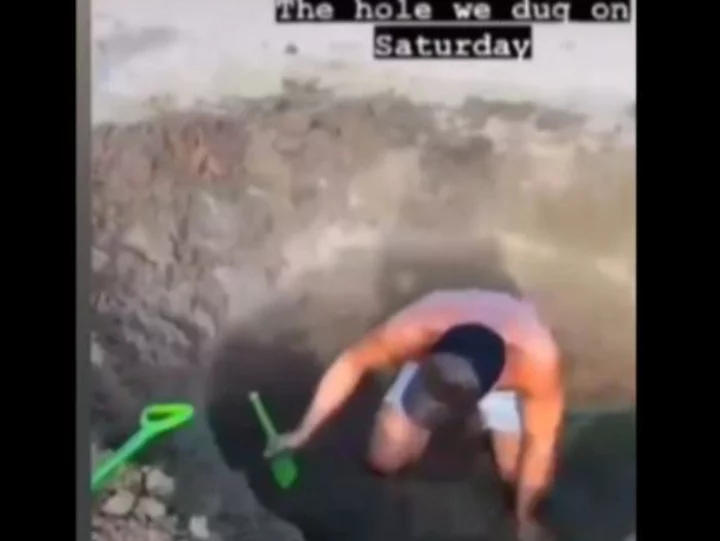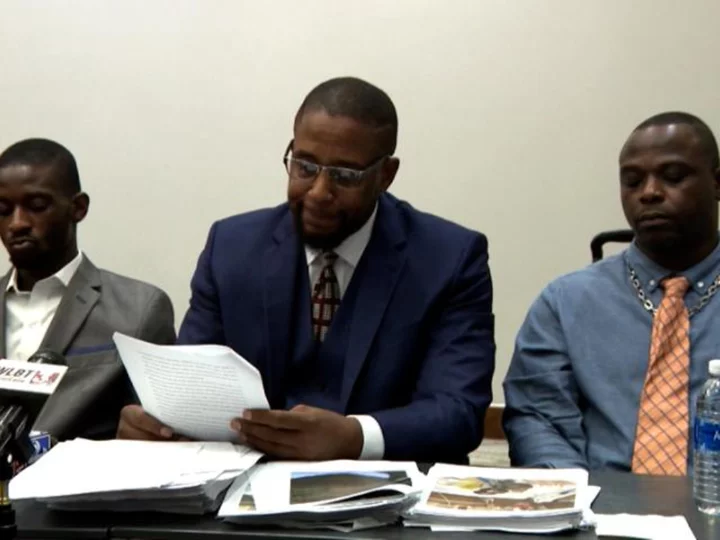A stargazer who thought he’d made the discovery of a lifetime was brought down to Earth with a bump when a crater apparently left by a meteorite was revealed to be nothing more than a hole dug by beach-goers.
Astrophysics enthusiast Dave Kennedy was over the moon when the hole, several feet wide and deep, appeared in north Dublin.
He felt sure that a small, black, heavy rock found at the bottom of the hole was an asteroid from outer space, and contacted various astronomy experts in an effort to confirm his theory.
He said a scorch mark on one side of the rock showed the angle at which it had fallen.
“Only a month ago, I was watching a documentary from Nasa on exactly what we’re looking at so when I looked at it and saw how uniform it is, and the vast crater, I knew immediately I was looking at an impact site,” he said.
Visitors to the Portmarnock beach gathered to inspect the crater.
One said: “We’re down here quite a lot and never seen anything like this before, so it’s pretty spectacular.”
However, Mr Kennedy’s optimism was short-lived. Within a day of his appearance on Virgin Media News, a “context note” on X (formerly Twitter) compiled from user information read: “It is in fact not a cosmic event - instead it was dug out the day before by 2 lads with a beach spade.”
Footage on social media posted by friends of the young men showed them sitting in the hole, digging it out with children’s spades, and was captioned: “The hole we dug on Saturday”.
Although the astronomy enthusiast was widely mocked, he said he would still have the rock analysed in the hope it wasn’t a “completely fruitless discovery”, Virgin Media News reported.
Research on the chances of asteroids hitting Earth has focused on much larger rocks. Astronomers say Earth probably will not be struck by an object 1km wide (0.6 miles) for at least 1,000 years – but they have not ruled out smaller meteorites landing before then.
Read More4.6 billion-year-old meteorite sheds light on early solar system – study
Best beach stays in the UK and Ireland for a peaceful break in 2023
Ukraine war: Kyiv ‘is pushing Russia back’, UK’s most senior military officer says
War-blinded Ukrainian soldier cries with joy at new love at his wedding
Ukraine ‘holds initiative’ in counteroffensive against Russia, says UK military chief









